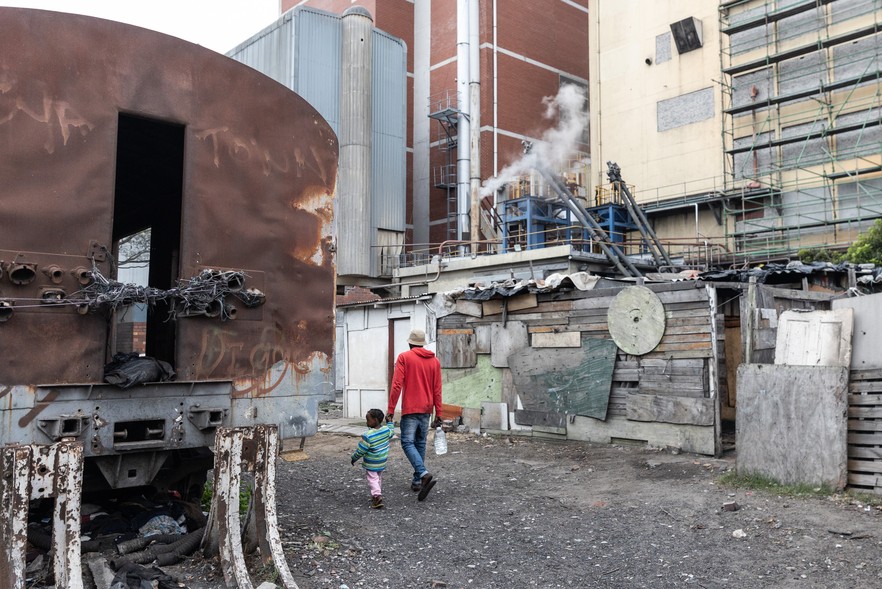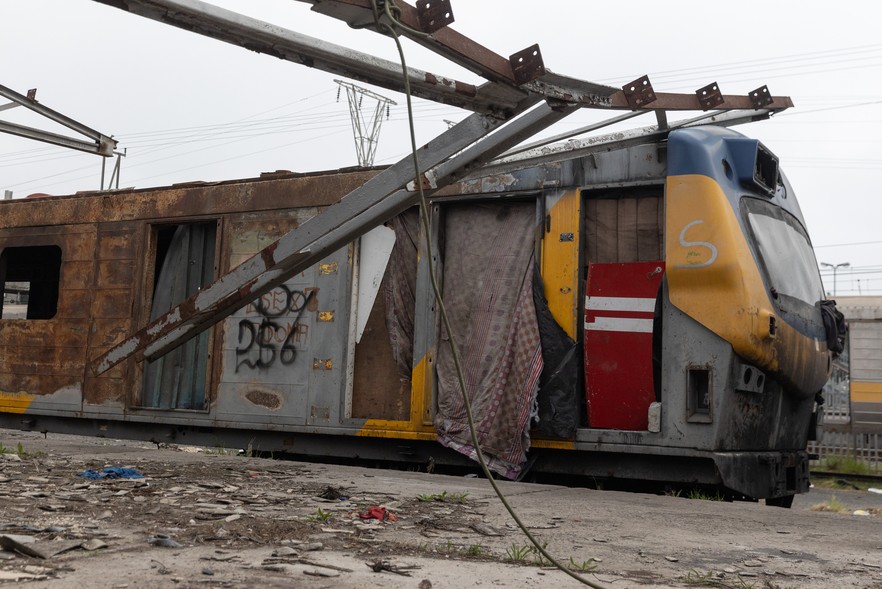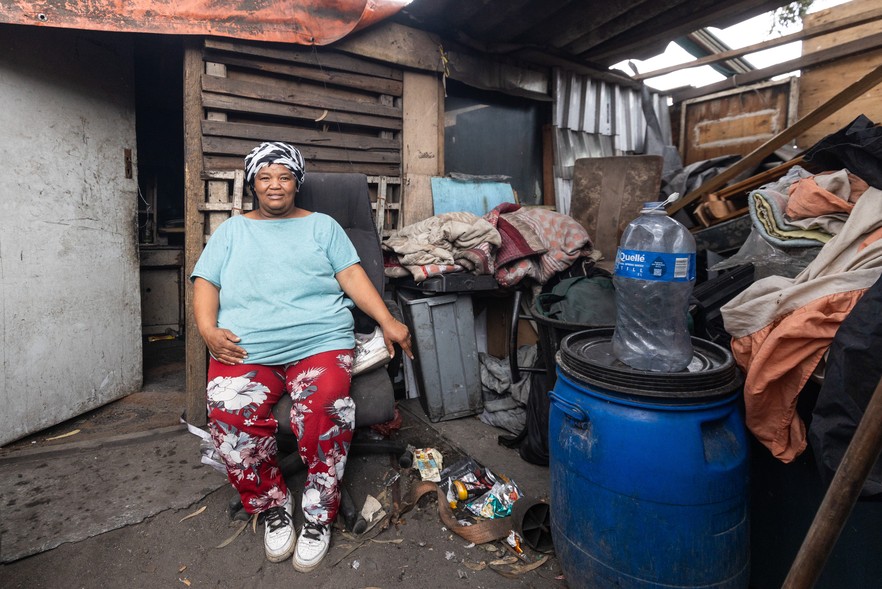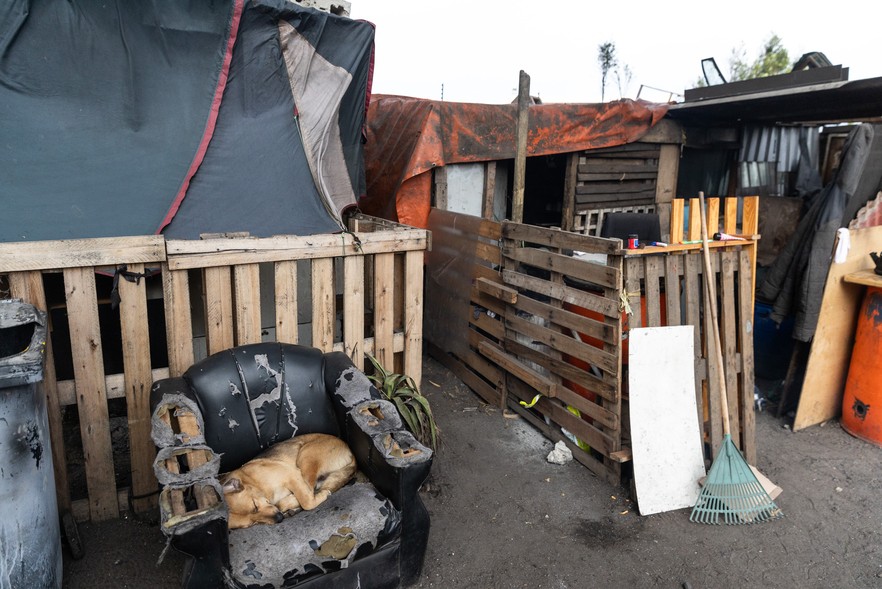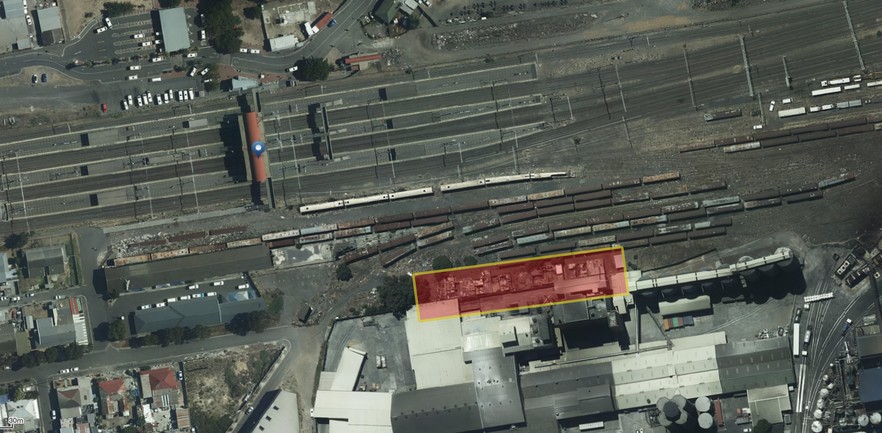Families fear eviction from old train yard
Some have lived in “Oya Town” near Maitland Station for eight years
A group of about 100 people have made a home for themselves below Maitland train station and next to the Jungle Oats factory.
Nestled between rusting train coaches and a factory billowing smoke, a group of about 100 people have made a home for themselves below Maitland train station and next to the Jungle Oats factory. They live in makeshift homes and wooden Wendy houses and have occupied abandoned brick structures. Some have even moved into abandoned trains.
The occupiers live without tap water, toilets or electricity. They say water was turned off a few months ago. They now collect water from nearby residents. They charge their phones at a shop for R5.
They have named the place Oya Town.
The land is owned by the Passenger Rail Agency of South Africa (PRASA) and they fear eviction.
“We don’t have water, we don’t have electricity, but we are fine here,” says Maghda Hayes, who has lived here for eight years.
Hayes says that PRASA officials have been threatening them with eviction. “Where must we go now?” she asks. “We want to stay here … as a family”.
Rozelda Engelbrecht’s children, Arrinze (5) and Onkeya (4), grew up in Oya Town. She ended up here after her landlord sold the place she rented and she lost her job as a packer.
“We didn’t have anywhere to go to”, she says. “Our lives are here”.
She says she is prepared to relocate, but PRASA officials have never once spoken to them before threatening eviction.
Nokuthula Mcula, homeless for over 15 years, has been here for the last seven years. “This is the only place that I have,” she says.
She also said she is willing to move to alternative accommodation but not back to the streets.
Some people live in the abandoned trains.
“PRASA must come to the table and speak to the community as they spoke to the people in Langa,” says Kashiefa Achmat, chairperson of the Housing Assembly, which advocates for housing rights.
In 2023, thousands of people were living in shacks on the Central Line in Langa. To get trains running again, they were relocated. Achmat says this community is no different, and the place was left vacant for a long time.
PRASA needs to find them nearby accommodation, she says.
PRASA comments
PRASA spokesperson Zinobulali Mihi said PRASA had received complaints from Tiger Brands (its tenants in Maitland) of criminal activities, stone throwing and staff (as well as Metrorail customers) being robbed “by the occupants”.
“The occupants have been informed on numerous occasions by our Protection Services team (Vagrants Unit) to vacate the premises due to increased crime levels.”
She said PRASA is scrapping the old trains on site, and this was exposing the occupiers to the “risks of falling pieces of metal, including the inhalation of gas from the machines used to cut the old and unused trains.”
“We intend to use the train yard for the safekeeping of the new trains. We can unfortunately not allow residency in our operational space. Also, the issue needs a multi-stakeholder approach between various government departments such as Social Development, Department of Housing and the City of Cape Town. We are in the process of meeting with them to come up with a resolution.”
Maghda Hayes says she and her husband have lived here for eight years.
Nokuthula Mcula, homeless for over 15 years, has been staying at the site for the last seven years.
Rozelda Engelbrecht’s children, Arrinze (5) and Onkeya (4), grew up in Oya Town.
Children playing in Oya Town.
A dog takes a nap.
Some of the residents held a picket outside nearby PRASA offices.
Families are living on land just below Maitland train station and next to the Tiger Brands Jungle Oats factory. Aerial photo from City of Cape Town’s EGIS Viewer
Support independent journalism
Donate using Payfast

Don't miss out on the latest news
We respect your privacy, and promise we won't spam you.
Next: Violence erupts in Philippi on the eve of the elections
Previous: Voters will be safe in Philippi, say community leaders and police
© 2024 GroundUp. This article is licensed under a Creative Commons Attribution-NoDerivatives 4.0 International License.
You may republish this article, so long as you credit the authors and GroundUp, and do not change the text. Please include a link back to the original article.
We put an invisible pixel in the article so that we can count traffic to republishers. All analytics tools are solely on our servers. We do not give our logs to any third party. Logs are deleted after two weeks. We do not use any IP address identifying information except to count regional traffic. We are solely interested in counting hits, not tracking users. If you republish, please do not delete the invisible pixel.

